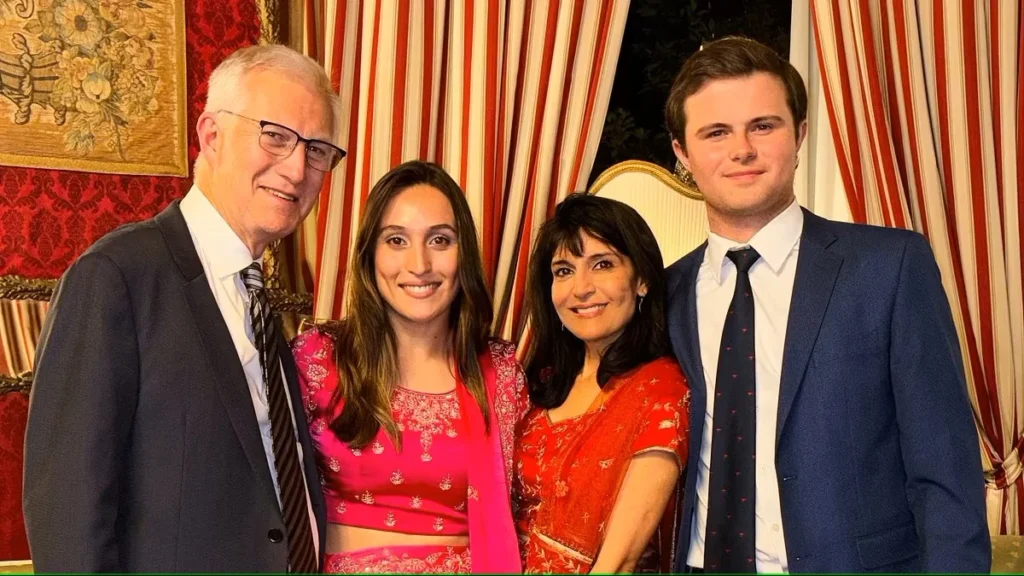Key Takeaways
- Karenna Groff, a former MIT soccer sensation and rising neurosurgery scholar, died in a tragic private plane crash in upstate New York.
- All six passengers aboard the Mitsubishi MU-2B aircraft, including Groff’s parents and boyfriend, were killed.
- Groff was widely celebrated for her leadership in women’s sports equality and academic brilliance.
- Her passing is a devastating blow to the worlds of athletics, medicine, and advocacy.
Karenna Groff plane crash: Introduction
Some stories are meant to inspire. Unfortunately, some serve as a reminder of how fleeting life is. The tragic death of Karenna Groff—a woman who had already achieved greatness in so many areas and had barely begun her journey—falls into the latter. Her sudden passing has sent ripples of grief across the country, from college campuses to medical institutions to soccer fields she once lit up with her brilliance.
Let’s revisit the incredible life Karenna lived, how her final journey ended too soon, and why her legacy will echo far beyond the crash site in upstate New York.
A Rising Star in Sports and Science
When you hear the name Karenna Groff, it brings to mind two things: excellence and impact. A standout athlete from the Massachusetts Institute of Technology (MIT), Groff rewrote record books during her time with the women’s soccer team. In 2019, she tied the school record by scoring four goals in a single game. Even more impressively, she once scored a hat-trick in just over four minutes—one of the fastest in Division III NCAA history.
By the end of her college career, Groff had secured her place among MIT’s all-time greats: second in total goals, second in points, and fourth in assists. But as impressive as her athletic résumé was, it was only one side of the story.
Karenna wasn’t just chasing trophies—she was chasing purpose. After graduating from MIT, she enrolled in NYU Langone’s Department of Neurosurgery, a field she felt deeply passionate about. Her peers described her as “laser-focused,” “humble,” and “relentlessly curious.” It’s not every day that someone can dominate a soccer pitch and then pivot to studying the complexities of the human brain—but Karenna Groff was never ordinary.
The Day the Sky Fell Silent
The tragedy unfolded on a seemingly quiet Saturday afternoon. A Mitsubishi MU-2B twin-engine aircraft carrying six passengers took off, only to crash into a muddy field in Copake, New York, near the Massachusetts border. It was just past noon.
Karenna, her boyfriend James Santoro, her parents, Drs. Michael Groff and Joy Saini, and two additional people whose names are still being verified were on board. The crash left no survivors.
According to preliminary reports by the National Transportation Safety Board (NTSB), air traffic controllers issued a low-altitude alert not once, but three times. Despite their efforts, there was no reply from the aircraft. No distress call. Just silence. Within minutes, what began as a routine flight turned into a national tragedy.
Authorities are continuing their investigation, but early speculation points to a mechanical or navigational failure. The Mitsubishi MU-2B, while known for its speed and efficiency, has a complex operating system and a controversial safety history—something aviation experts are now revisiting in light of the crash.
A Trailblazer Off the Field
Even outside of soccer fields and medical wards, Karenna Groff had an impact. She was a strong supporter of gender equality in collegiate athletics, especially in relation to NIL (Name, Image, and Likeness) contracts.
In a landmark move, Groff joined a cohort of student-athletes working alongside H&R Block to boost visibility and financial opportunities for women athletes. Their campaign channeled millions of dollars into supporting female collegiate stars—shattering decades of disparity in just a few short years.
“We’re building something that lasts,” Karenna had said in a campus interview. “Women’s sports deserve more than applause—they deserve investment.“
That quote now feels chillingly prophetic. Not only was she playing the game, but she was also altering it.
A Family of Purpose

The loss of Karenna is devastating, but it’s compounded by the deaths of her parents, who were deeply respected figures in their fields. Dr. Michael Groff was a renowned spine surgeon, admired for his innovations in minimally invasive procedures. Dr. Joy Saini was a champion for accessible healthcare, especially in underserved communities.
Their shared mission—improving the lives of others—was passed on to their daughter in spades. Together, they formed a family driven by knowledge, compassion, and service. And now, tragically, that dazzling light has gone out.
James Santoro, Karenna’s boyfriend, was a tech entrepreneur and NYU student known for his work in digital health. He and Karenna were reportedly working on a health-focused app designed to help underserved communities access neuroconsultations. They had dreams not just for their careers, but for a better world. Now, those dreams remain unfinished.
A Legacy That Cannot Be Grounded
What makes this story so devastating isn’t just the loss—it’s the potential. Karenna Groff was the kind of person who would have gone on to revolutionize fields, whether in sports advocacy, surgery, or social impact. She was a rare fusion of heart and horsepower, someone who inspired simply by existing.
From the fields of MIT to the research halls of NYU, people are remembering her not just for what she did, but for who she was. A teammate. A scholar. A friend. A daughter. A future leader.
Conclusion: A Light That Won’t Dim
In a world often starved for authentic role models, Karenna Groff stood tall. She played hard, studied harder, and fought for causes that mattered. Her final flight may have ended in tragedy, but the story of her life remains one of inspiration, brilliance, and fierce determination.
As the investigation continues and tributes pour in, one thing is certain: Karenna’s legacy won’t be defined by the crash—it will be defined by how she lived.
Let this not just be a story of loss, but a call to carry forward the light she left behind.


